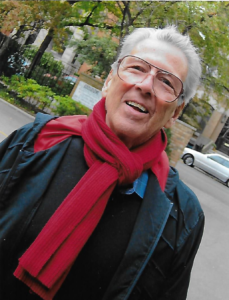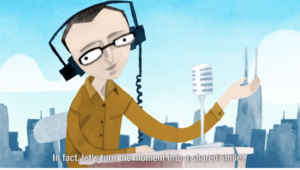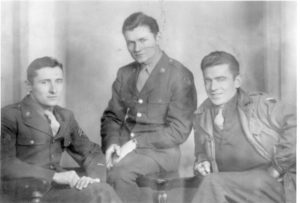
Today’s guest blogger, Bill Gordon
I am pleased to Welcome Bill Gordon back as a guest blogger today. Born and raised in Kansas, Bill lived all over the country during his nearly 50-year career in library and association management. When he retired in 2002, he was the Executive Director of The American Library Association, located here in Chicago, and has called Chicago home ever since. Bill has been in one or another of my memoir-writing classes since 2013. We’ve come to know each other very well over the years, and after he celebrated his 85th birthday with a few friends last month he sent me a short note. “For entertainment, I decided to read a few of my essays out loud for those friends,” it said. “I wasn’t certain that I should, but it turned out to be a hit. Who knew??”
He needn’t have been surprised. Bill’s essays are always well-written, sometimes witty, sometimes sentimental, always thought-provoking. I hope this was one he read that night, and I thank him for giving me permission to share it here with you Safe & Sound blog readers today.
by Bill Gordon
From the plateau of eighty-five years old I am looking across the decades of my life to see which changes altered my course, changed my direction, upended my plans.
The death of my father when I was a teenager and the devastating financial changes it caused to our lives? Finding myself on my own at eighteen? Marriage? Divorce? Moving six times? Criss-crossing the country for my career? Starting a new life over and over as I moved from city to city? My nearly two-year long travel adventure around the world? Crippling disability? Confinement to a wheelchair? No, none of these changed my life like this one word did:
HOMOSEXUAL.
In 1949 I was an eighth grader at Liberty Jr. High in Hutchinson, Kansas. Lunch was not provided in the public schools, so I had to race home nine blocks, eat lunch and return to school within an hour.
Our first mail delivery of the day — we received two a day in 1949 — was at 10:00 in the morning, so I could peruse the mail while eating lunch.
Many households like ours subscribed to periodicals to supplement what we heard on the radio and read in the daily newspaper. Reader’s Digest was among our magazine subscriptions. Unlike other publications, the table of contents was listed on the Digest’s cover
The memory of one particular lunch time is unforgettable. Among the articles listed on the cover of the Digest was one titled “Homosexuality: The Scourge of America.” I had never seen that word before, but I instantly knew it had something to do with me.
With no time to read the article I raced back to school and spent the afternoon exhausted by anxiety…and eager to have a chance to read the article.
The news was worse than I imagined. The three well-known medical professionals who wrote the article suggested such things as lobotomies, castration, exile, conversion therapy, and institutionalization for all homosexuals. They classified homosexuals as perverts, mentally ill, and contemptible people who engaged in unnatural, illegal acts.
From an early age — perhaps four or five — I knew there was something different about me. As I grew older, I realized I was sexually drawn to both males and females. My early explorations were with boys, a fairly normal maturing process, as it turns out. But then why did my groin tingle just as much when I looked at Janis as it did when I looked at Charlie?
My examination of the card catalog at the Hutchinson Public Library frightened me even more. Under the heading Homosexual it said “see Mental Illness and Criminal Activity.” A surreptitious examination of the literature seemed to confirm that acting on my sexual impulses would mean I was mentally ill and, perhaps, a criminal. But how could that be? I felt I was mentally fit and a law-abiding citizen. Now that I had a word to apply to what or who I was, what was I to do?
My first impulse was to run away. The last thing I wanted to be was an embarrassment to my parents. But running away was not realistic. That would cause my parents anxiety and embarrassment. Suicide never crossed my mind — I liked myself too much. A curious kid, I wanted to see what tomorrow might hold.
What I did know was that I had to hide who I really was.
Permanent change took place for me the moment I saw the word “homosexual.” No more living an authentic life. From then on I intuitively understood I had to disguise anything about myself that might give me away. Being “normal” was the part I would have to play forever. I would have to learn to lie and alter the truth to meet others’ expectations.
My self-imposed rules became: be careful what you say, watch how you walk, notice what you wear, be careful not to stand out, develop a persona that will match what you believe is expected of you, do not have close friends, do your best to fit in or be invisible, be the best student you can be as a defense, do not react if teased or taunted. Feeling I had to live with so many rules, life became exhausting, but I knew somehow I was up to it.
Luck has often been on my side, and as luck would have it, I have led, from my point of view, a fascinating life filled with adventure, friendships, success, and most of all love. I have had the good fortune of being able to adapt, adjusting as the rules changed.
Looking back over these many years, I am comforted knowing that, most important of all, I have loved and been loved with depth and passion. Who could want more?





